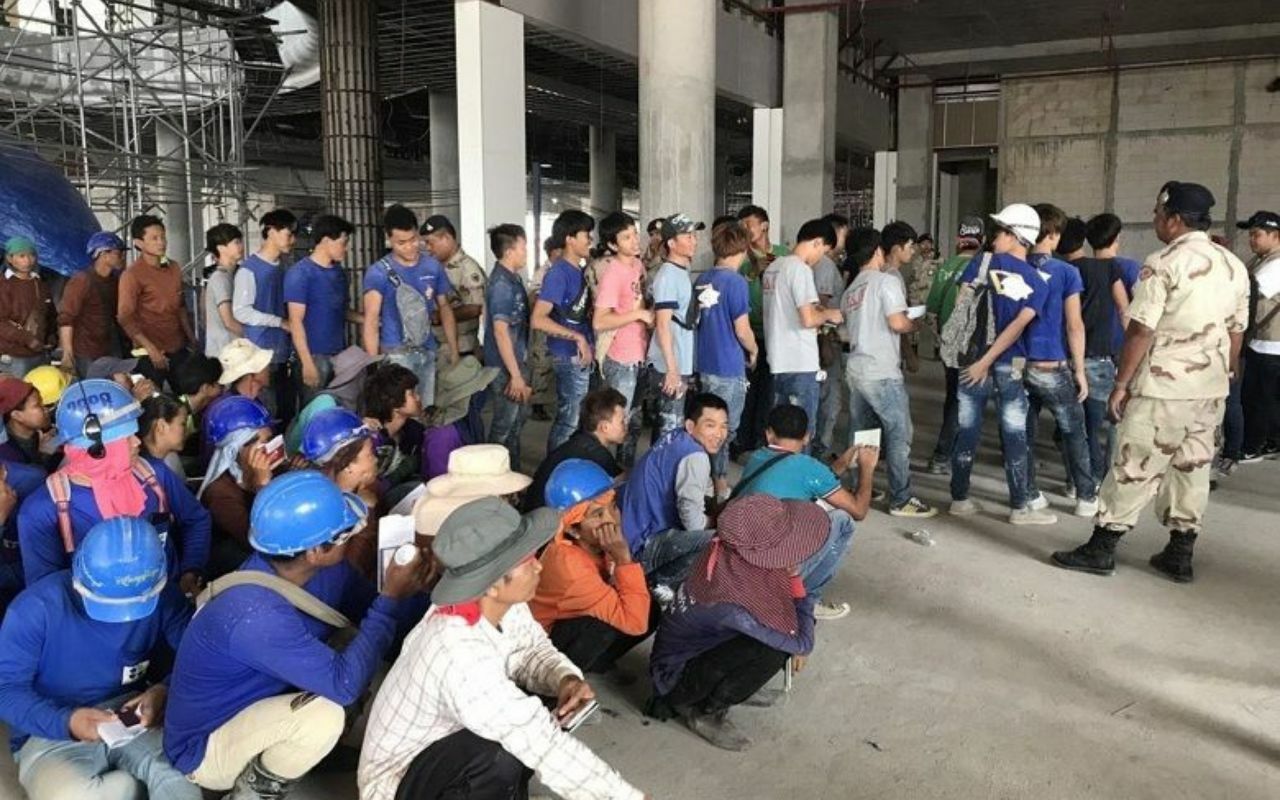Thai Cabinet extends contracts of migrant workers, easing labour shortage fears

The Thai Cabinet‘s recent decision to extend employment contracts for over 200,000 migrant workers has alleviated concerns about a domestic labour shortage.
Poj Aramwattananont, vice-chairman of the Thai Chamber of Commerce and president of the Labour and Skill Development Committee, said the move addresses management issues related to migrant workers while easing the worker shortage in industries requiring intensive labour or involving dangerous, dirty, or difficult jobs.
The decision eases financial pressure on both employers and employees. Poj said…
“The economy is recovering as the country opened up following the pandemic. The clear engine driving the economy is labour, and the development of human capital is important at all levels.”
Thailand is facing structural problems, with severe shortages in both the quantity and quality of labour, especially in the tourism, service, construction and real estate, food processing, and small business sectors. These sectors have a high demand for a large number of workers to support the country’s economic growth.
“The chamber and the Federation of Thai Industries [FTI], together with the Labour Ministry and the Department of Employment, have joined forces to accelerate the resolution through a memorandum of understanding [MoU].”
The Cabinet approved a Labour Ministry proposal on the management of migrant workers in two groups: an MoU on foreign workers from Cambodia, Laos, and Myanmar, and an agreement on foreign workers from Cambodia, Laos, Myanmar, and Vietnam. The approval was based on a Cabinet resolution from July 5, 2022, and another dated February 7, 2023.
As a result, these workers can continue to work in Thailand until July 2023.
According to government spokesman Anucha Burapachaisri, the move is intended to reinforce economic security.
The extension applies to migrant workers who arrived under labour-related MoUs signed by governments.
The employment period lasts up to four years and varies depending on the type of worker. The extension expires on July 31, said Anucha.
The contract extension only lasts as long as the current government remains in its caretaker capacity.
The measure is subject to review once a new administration is formed.
The Cabinet previously rejected the ministry’s request for an extension, fearing it would create a burden of responsibility for the new government, which should be left to decide on the matter.
The Cabinet changed its mind and approved the extension as the lingering uncertainty over the government’s formation threatens to leave a huge labour vacuum, said Anucha.
According to Deputy Prime Minister Wissanu Krea-ngam, without the extension, the migrant workers would have had to return home and wait until a new government took power before they could come back to resume their employment in Thailand.
Latest Thailand News
Follow The Thaiger on Google News:


























